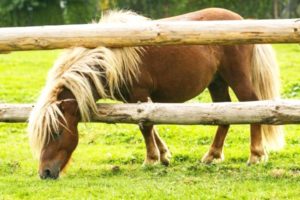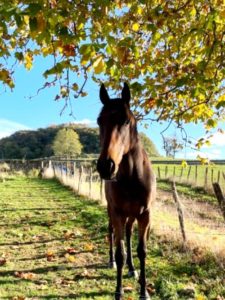
Ever wondered why ponies come in different categories like A, B, C, D, and E, and what’s the deal with “double ponies”? Let’s unravel the pony-size mystery.
1. Category A: the tiniest ponies
- Category A ponies are like the pocket-sized pals of the horse world.
- They’re usually shorter than 1.07 meters at the withers, which is their shoulder height.
- These are your classic, small ponies that make everyone say “aww.”
2. Category B: slightly bigger ponies
- Category B ponies are a smidge taller than Category A.
- They measure between 1.07 meters and 1.17 meters at the withers.
- Still adorable but a tad larger!
3. Category C: bigger yet still ponies
- Category C ponies are a bit more substantial in size.
- They stand between 1.17 meters and 1.30 meters at the withers.
- These ponies are more robust and can carry a little more weight.
4. Category D: bigger ponies (but still ponies)
- Category D ponies are even more substantial in stature.
- Their height at the withers ranges from 1.30 meters to 1.48 meters.
- They’re big for ponies but not quite horse-sized yet.
5. Category E: horses, not ponies
- And then there’s Category E, which includes the big boys and girls – actual horses.
- Their withers stand taller than 1.40 meters.
- These are the full-sized equines you often see in horse races and riding schools.
(For reference: 1 hand = 4 inches; horses are traditionally measured in hands, but metric measurements are used internationally.)
Now, let’s talk about the infamous “double ponies.” This term isn’t officially recognized. It’s like a friendly nickname for ponies that fall between Category D and Category E in terms of size. They’re larger than your typical pony but not quite horse-sized. It’s a way for folks to describe them informally.
So, next time someone mentions Category A, B, C, D, or E or throws in “double ponies” for good measure, you’ll know exactly what they’re talking about. These categories help riders and horse enthusiasts choose the right-sized companion for their equestrian adventures.


2 Comments
Horses have from the beginning of time been measured by hands
Recently uneducated
And city idiots have used metrics terminology to describe a horse or ponies size. Let’s get back to the proper horse measuring terminology
Traditionally, horses are indeed measured in hands (1 hand = 10 cm = 4 inches), and that system is still widely used.
I chose meters to make the article accessible for an international audience. Both systems are valid — just different units.
I’ve now added a note in the blog clarifying this. Thanks for raising the point!